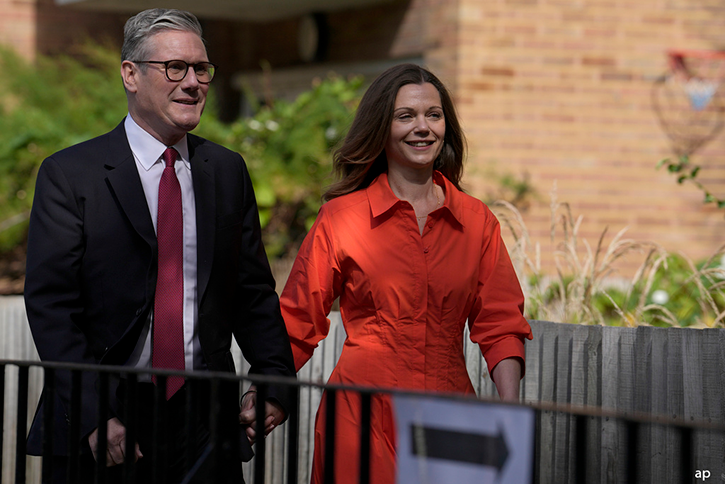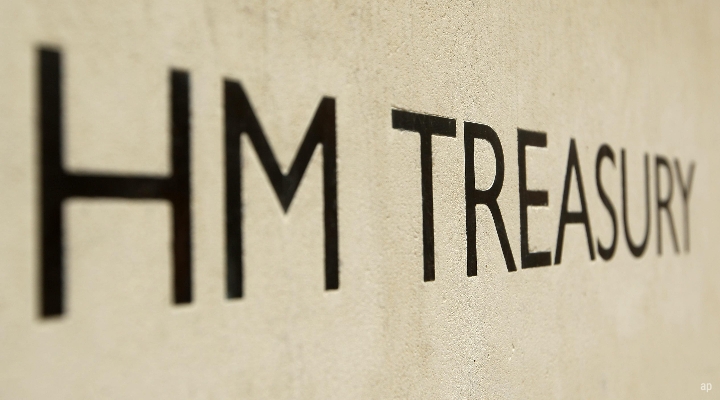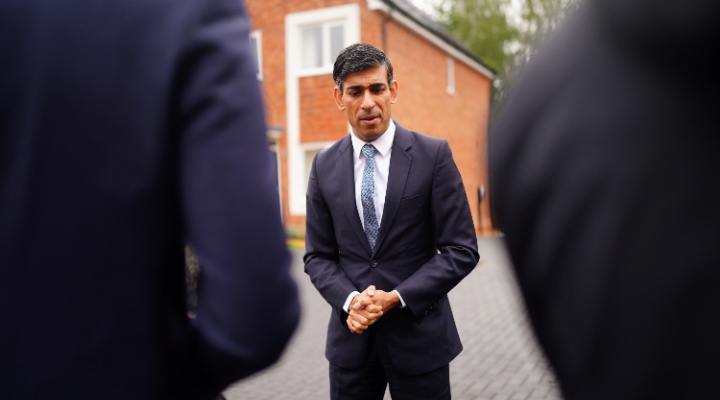
Rachel Reeves will make history on 30 October. Not only will she deliver the first Labour-led government Budget since the late Alistair Darling's final Budget speech on 22 April 2009, but she will be the first woman to do so – ever. Much will certainly be made of that.
That is just about the only good news story on the horizon.
Amid higher inflation figures, talk of a fiscal "black hole" in departmental budgets, and her own admission on a podcast that taxes will now have to rise, the new chancellor's speech will contain impossible choices. Enter pensions.
Pensions have rarely been out of the headlines in the last decade – even if certain repeatedly-mooted changes to the UK's pension system didn't always make it into the Treasury's red book. This time there is every reason to believe they will be a substantial part of the picture.
How Could Labour's Plans Affect Working-Age Savers?
Pension Tax Relief
Rarely a year goes by without intense speculation that the system designed to encourage savers to put money into their pensions will be cut or altered. At the moment, pension tax relief is delivered at the marginal rates of 20% (basic), 40% (higher rate), and 45% (additional rate), but there have long been calls for that to change.
One idea is a "flat rate" of pension tax relief at or around the 30% mark. This would make pension saving more attractive for those on lower incomes, but it would represent a significant reduction for higher earners – for whom pensions are an important part of wealth building and tax management.
One reason to keep an eye on this is Reeves's own previous support for a similar measure. Before she joined Keir Starmer's shadow cabinet, she argued George Osborne should introduce a flat-rate of pension tax relief set at 33%.
A reason Reeves may not have taken that idea with her into the Treasury, however, is the government's ongoing effort to resolve public sector pay disputes. A flat rate of pension tax relief would affect many pension savers in the public sector – and may be the cause of further wrangling the chancellor and prime minister neither want nor need.
Pot For Life
Reeves has already signalled there will be broad continuity with Jeremy Hunt's March 2024 Budget policy of encouraging UK pension schemes to disclose how much they invest in UK assets. Will she adopt his other policies too? At the Autumn Statement last year, Hunt revealed "Pot For Life", a mechanism designed to ensure UK workplace pension savers avoid amassing dozens of pension pots as they change jobs throughout their careers. It was curiously absent from the Conservative Party manifesto, however. There is little indication of long-term Labour support either. For instance, it does not feature in the terms of reference for a wholesale review of pensions published on Friday by the Treasury.
Instead, it's possible Labour will pursue the policy of "default pension consolidation," whereby small pension pots are automatically consolidated if they contain less than a threshold amount. This would pose problems of its own. Namely, it would require that system to keep pace with the number of new pots being created every time a person changes job. For now, it looks like Pot For Life is dormant, if not dead.
The Traffic Light System
While Reeves has publicly expressed support for Jeremy Hunt's Mansion House reforms, there is new policy emerging all the time.
It may not take centre stage in the October Budget, but the Financial Conduct Authority has recently announced plans to introduce a "traffic light" system that will allow workplace pension savers to compare schemes by investment performance and service quality – in addition to fees and charges.
If they fail to improve, poor-performing "red" schemes will be required to move their members’ assets to a "better" scheme. Though the automatic enrolment of workers into pension schemes begun in 2012 was designed to require minimal involvement on the part of savers, this will give them yet more opportunity to engage in the process.
The Canada Plan
And that's not all on the consolidation front. Last week, the chancellor visited Canada on a fact-finding mission. The goal? With the help of former Bank of England Governor Mark Carney, to find a way of turning England and Wales's fragmented £360 billion local government pension schemes into a mega scheme similar to one of the Canadian "Maple Eight." Larger schemes give savers better access to huge infrastructure projects, or so the thinking goes, and, with them, better returns and better economic growth.
Again, this is arguably invisible to the day-to-day worker with a nine-to-five, but it's an example of a relatively innocuous policy that could have a big impact on the way pension funds work.
How Will Labour's Plans Affect Those Approaching Retirement?
The FCA's plans for a "simplified advice" regime long pre-date the arrival of Keir Starmer in Downing Street. It's possible that the Budget will join up this important regulatory agenda with the work already being done on pensions in the Treasury. One sign of joined-up thinking with regards to retirement is that the role of "pensions minister" is now cross-departmental between the Department for Work & Pensions and the Treasury itself.
In terms of concrete policy, we already know the pensions lifetime allowance has been scrapped as of April this year, but an allowance remains that could be the subject of further tinkering. As a result of the 2023 Budget, the so-called "annual allowance" on pension saving is now £60,000 for most people. Though it would doubtless prove extremely unpopular, reducing this, or introducing carve-outs, could prove a money spinner for a cash-strapped Treasury.
How Will Labour's Plans Affect Those in Retirement?
The State Pension Triple Lock
During the election campaign, Jeremy Hunt made the arguably-bold move of committing his Party to keeping the state pension triple lock if re-elected to government.
Bold, because the policy is expensive – by one estimate, continuing the policy will cost the taxpayer between £10 billion and £45 billion extra per year by 2050. Also, because it threw down the gauntlet to Labour to make a similar commitment – lest it be accused of abandoning pensioners. The Party has since joined the pro-triple lock throng: Reeves has made repeated pledges to keep the policy until at least 2029, so we're likely to see the debate over its affordability continue for some time yet.
Following a fresh leak of government projections to the BBC, we now know that it is possible the triple lock will bump the value of the state pension by more than £400 per year. The changes would take the full state pension to around £12,000 in 2025/26, after the £900 increase in 2023. These reports are as yet unconfirmed by the government, but, if this outcome is correct, it will go some way to quelling a rebellion by Labour backbenchers over winter fuel payments (see below).
No National Insurance Hike
Under pressure from the Conservative Party, which during the election campaign pledged the launch of a "Triple Lock-Plus" policy up-rating the personal allowance for pensioners by the higher of inflation, earnings, or 2.5%, Reeves has also ruled out taxing working pensioners via the National Insurance payments system. Currently those over state pension age who remain in paid employment do not pay National Insurance on their earnings. Despite calls from at least one think tank to remove the rule, Reeves has pledged to keep it.
Winter Fuel Payments
The bad news is that those in retirement who are not in receipt of universal credit or other means-tested benefits will have their winter fuel payments removed. This means those who were counting on the up-to £300 a year that the policy provides will now go without. Predictably, this has been met with a frosty reception by those it affects, not least because it represents a u-turn on the position previously taken by – among others – chief secretary to the Treasury Darren Jones, who had previously written to Tory ministers saying it should not be cut.


























